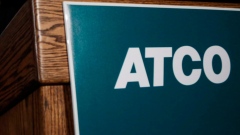Nov 21, 2023
What you need to know about the upcoming fall economic statement
, BNN Bloomberg
This is just the start of more government spending: Scotiabank's Derek Holt
Ahead of the federal government's fall economic statement on Tuesday, here’s a look at what experts anticipate from the announcement.
Finance Minister Chrystia Freeland is expected to table the federal government’s fall economic statement on Nov. 21. The statement will act as an update on the federal government’s finances, as well as introduce new measures reflective of the government’s priorities.
Jules Boudreau, a senior economist at Mackenzie Investments, said in an interview with BNNBloomberg.ca last week that the upcoming fall economic statement is likely to be similar to those from the previous two years.
“So they knew that the budget deficit over the past year was lower than expected (and) that growth was better than expected, but looking ahead, it's going to be tougher and because of that, they'll have to spend more,” he said.
“There's a few measures we expect to be added and to be hopefully priced in the fall economic statement that would lead to a higher deficit. There is the cut in taxes for new construction. Hopefully, there's the subsidies for Volkswagen and Stellantis plants.”
In September, the federal government moved to eliminate GST from new rental projects. Earlier this year, it also announced subsidies granted to Volkswagen and Stellantis-LG Energy Solution to incentivize the companies to build electric battery plants in Canada.
Jim Stanford, economist and director of the Centre for Future Work, said in a Monday interview with BNN Bloomberg that Tuesday’s update will show how the federal government’s financials have performed since the spring budget.
He said he believes they will be “more or less on track” with the projections made at the time, but interest charges on the debt have increased alongside rates.
“On the other hand, government revenues are going to be stronger than expected, because of the higher nominal GDP (gross domestic product) and the impacts of inflation. Frankly, governments actually make more money out of inflation. So revenues will be strong,” he said.
Stanford said he doesn’t anticipate any “big news” on Canada’s deficit.
Canada’s budget is “not remotely a cause for alarm,” according to Stanford who said it has the second smallest budget deficit in the G20.
Amid economic uncertainty, Freeland promised to prioritize fiscal responsibility in next week's economic update. The focus comes as the federal government faces fiscal pressures from a slowing economy and criticism of excessive spending.
“I think there's no way that we actually get a net deficit reduction or net debt reduction. I think it's basically mathematically impossible. So when she says fiscal responsibility, it's more a question of the degree to which the debt and deficit will increase with the new measures,” Boudreau said.
Pressures from a slowing economy are expected to impact federal government revenues, hindering its ability to finance new measures.
Last month, the parliamentary budget officer projected the federal deficit would rise to $46.5 billion in 2023-24, from $35.3 billion during 2022-23.
“Overall, I think it's going to be more of the same, the fact that the deficit is going to have to increase, they don't have a choice, they'll try to frame it as inflation fighting,” Boudreau said.
‘DEATH BY A MILLION CUTS’
In an interview with BNN Bloomberg Monday, Andrew Kelvin, the head of Canadian and global rates strategy at TD Securities, said the economy is currently slowing under the weight of tight monetary policy.
He said this impacts households now experiencing elevated living costs, but the government has limited options.
“It's an economy, which they probably can't do a whole heck of a lot to turn the tide of to be perfectly honest with you,” Kelvin said.
Higher interest rates also serve to increase the costs associated with government spending.
“It's death by a million cuts, the high-interest payments that they're now paying does sort of incrementally decrease their ability to add stimulus to help people who are maybe feeling the pinch of the high living costs,” he said.
The cause of higher interest rates, according to Kelvin, is that governments around the world had overly expansive fiscal policies during the “latter period” of the COVID-19 pandemic.
He said governments will have difficulty navigating the situation as a result because, amid tight monetary policy, government spending will cause central banks to keep interest rates higher across a longer timeline.
“I think we're at that point in trying to generate price stability. Governments, the world over can help by raining back a little bit on spending by not adding more fuel to the fire,” Kelvin said.
However, he added he doesn’t want to criticize governments for overspending during the pandemic.
“It was a very uncertain time, the economy was in a very tough way. They can be forgiven for doing too much rather than too little,” Kelvin said.
“But I think going forward, certainly the best way of returning to a more normal economy, more normal interest rates, more normal inflation, would be a fiscally prudent budget from whatever government you want to talk to.”
AFFORDABILITY AND HOUSING
Freeland also stated the fall economic statement will be centred around affordability and housing. However, Boudreau said it may to tough for the federal government act on that statement.
“It's tough, in my opinion (the) federal (government) can’t do much, I think it's more the local government, either provinces or cities. They’re going to try to announce stuff but I don't think there's anything with a lot of teeth that they could do. I think they've already done more than enough on the demand side.”
Boudreau said he thinks the federal government may focus on housing supply issues. He added there is no “silver bullet” that he is aware of that would impact affordability in the near term. Instead, he thinks the government may act to reframe previously announced tax cuts on construction for rental units.
With files from the Canadian Press







